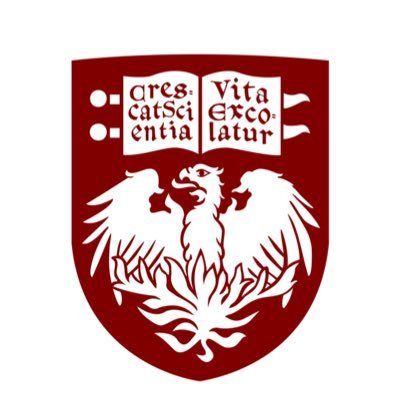预约演示
更新于:2025-05-07
Bcl-xl x Bcl-2
更新于:2025-05-07
关联
30
项与 Bcl-xl x Bcl-2 相关的药物作用机制 Bcl-2抑制剂 [+2] |
在研机构 |
原研机构 |
在研适应症 |
最高研发阶段临床3期 |
首次获批国家/地区- |
首次获批日期1800-01-20 |
作用机制 Bcl-2抑制剂 [+1] |
原研机构 |
最高研发阶段临床2期 |
首次获批国家/地区- |
首次获批日期1800-01-20 |
作用机制 Bcl-2抑制剂 [+1] |
在研机构 |
原研机构 |
非在研适应症- |
最高研发阶段临床1/2期 |
首次获批国家/地区- |
首次获批日期1800-01-20 |
66
项与 Bcl-xl x Bcl-2 相关的临床试验ChiCTR2400094086
A clinical study of olverembatinib in combination with APG-1252 for the treatment of relapsed/refractory Philadelphia chromosome-positive acute lymphoblastic leukemia or T-cell acute lymphoblastic lymphoma
开始日期2025-01-01 |
申办/合作机构- |
NCT06207123
A Phase I/II Study to Investigate the Combination of LP-118, Ponatinib, Vincristine and Dexamethasone in Relapsed/Refractory T-ALL/LBL
The purpose of this study is to learn more about LP-118 (an experimental drug) and its side effects and decide on acceptable doses. The purpose of this study is to determine if LP-118 can be given safely with another medicine called ponatinib, that is FDA-approved for the treatment of acute lymphoblastic leukemia.
开始日期2024-09-13 |
申办/合作机构 |
100 项与 Bcl-xl x Bcl-2 相关的临床结果
登录后查看更多信息
100 项与 Bcl-xl x Bcl-2 相关的转化医学
登录后查看更多信息
0 项与 Bcl-xl x Bcl-2 相关的专利(医药)
登录后查看更多信息
7,574
项与 Bcl-xl x Bcl-2 相关的文献(医药)2025-07-01·Fish & Shellfish Immunology
Enhancement of reactive oxygen species metabolism by antioxidant enzyme Cu/Zn-SOD can block betanodavirus-induced necroptosis and suppress viral replication in fish cells
Article
作者: Hong, Jiann-Ruey ; Liao, Hong-Jun
2025-07-01·European Journal of Pharmacology
Protocatechuic acid attenuates isoproterenol-induced heart failure by modulating cardiac oxidative stress, LDL-R/SREBP-2/PPAR-α, and Bax/Bcl-2 /Bcl-xL/Cyt.c/ Caspase - 9 and Caspase - 3 pathways
Article
作者: Stanely, Shervin Prince ; Shanmugasundaram, Bhavadharseny Uma ; Ponnian, Stanely Mainzen Prince
2025-07-01·European Journal of Medicinal Chemistry
Discovery of XZ338, a highly potent BCL-XL degrader
Article
作者: Thummuri, Dinesh ; Zheng, Guangrong ; Zhou, Shuo ; Hu, Wanyi ; Zhou, Daohong ; Zhang, Peiyi ; Zhang, Xuan ; Liu, Xingui
197
项与 Bcl-xl x Bcl-2 相关的新闻(医药)2025-05-05
·抗体圈
摘要:随着对生物类似单克隆抗体(mAbs)需求的不断增加,开发稳定高产的细胞系并缩短筛选时间变得至关重要 。本文综述了中国仓鼠卵巢(CHO)细胞系在单克隆抗体制备方面的研究进展,涵盖载体工程、宿主细胞工程、筛选与扩增策略、转染方法以及工艺优化等多个方面。这些进展旨在提高单克隆抗体的生产效率和质量,以满足医疗和制药行业的需求。通过综合运用这些技术,有望实现更高效、稳定的单克隆抗体制备,推动生物制药领域的发展。一、引言单克隆抗体在治疗癌症、自身免疫性疾病等多种严重和慢性疾病方面发挥着重要作用,自 1992 年首个治疗性单克隆抗体获批以来,已有众多单克隆抗体药物上市,应用范围不断扩大 。细胞系开发是生产重组治疗性蛋白质的关键步骤,其中 CHO 细胞系因其能够进行准确的糖基化修饰、可在悬浮培养中大规模生长且符合监管要求,成为生产生物类似药的 “黄金标准” 表达系统 。然而,现有生产平台存在生长特性不稳定、产量不一致和质量属性差异等问题,因此生物制药行业一直在探索新的、更高效的方法来提升治疗性蛋白质的生产能力(原文 Fig. 1,展示细胞系开发的工作流程示意图,帮助读者理解从基因构建到筛选高产细胞系的整个过程)。二、载体工程策略载体工程对细胞系的发展至关重要,它通过对载体元件的修饰来精确调控宿主细胞的基因表达 。启动子和增强子的优化:启动子和增强子在基因转录过程中起着关键作用 。多种启动子被广泛应用,如病毒来源的 CMV - IE、SV40,以及真核生物的 PGK、EF - 1 等 。其中,hCMVp 因能有效促进转基因表达而被频繁使用,但病毒启动子易受 DNA 甲基化影响而导致表达降低 。相比之下,内源性启动子如 CHEF - 1 可降低沉默和应激反应的风险,而合成启动子如 SCP1 则能大幅提高转录速率 。此外,像 Cumate 基因开关这样的诱导系统,在血清 - 无 CHO 细胞中能实现基于腺病毒或慢病毒载体的瞬时转基因表达,且具有可调节性,在需要快速生产少量蛋白质时具有优势 。染色质修饰元件的作用:基因表达还受到整合位点的影响,随机整合可能导致基因表达不稳定 。染色质修饰元件(CMEs)可分为两类:一类是使染色质处于转录开放状态的元件,如 UCOEs 和 LCRs;另一类是防止异染色质标记扩散的元件,如绝缘子、STAR 元件和 S/MARs 。UCOEs 能维持染色质开放,提高转基因表达水平并抵抗基因沉默;S/MARs 则通过与核基质或支架结合,保护转基因免受表观遗传沉默,但它的活性相对较弱且作用机制尚未完全明确 。(原文 Fig. 3,展示 UCOEs 保护基因免受表观遗传沉默的机制示意图,直观呈现 UCOEs 如何维持基因的开放状态以促进转录)密码子优化和信号序列的应用:密码子优化通过利用同义突变提高蛋白质表达,不同细胞中转运 RNA 的丰度差异会影响 mRNA 的稳定性和二级结构,进而影响蛋白质表达 。研究发现,基于密码子使用的优化可使 mAb 在 CHO 和人类细胞中的表达提高 1.5 - 4 倍 。此外,合适的信号肽对于蛋白质的转运和折叠至关重要,使用人类白蛋白产生的信号肽可使稳定产生 mAb 的 CHO 细胞的平均比生产率提高一倍以上 。三、宿主细胞工程为满足对治疗性蛋白质不断增长的需求,研究人员对 CHO 细胞进行了工程改造 。调控细胞死亡:细胞死亡会影响细胞培养和生物工艺的产量,通过调控细胞凋亡和自噬相关基因可以延长细胞培养的可持续性 。例如,过表达 BCL - 2 和 BCL - XL 等抗凋亡蛋白可以抑制细胞凋亡,提高细胞活力和 mAb 产量;利用 siRNA 沉默促凋亡蛋白或通过 CRISPR - Cas9 技术敲除相关基因,也能达到类似效果 。此外,敲除自噬起始关键基因 ULK1 可使蛋白质表达提高三倍,表明自噬与蛋白质表达之间存在复杂的相互作用(插入原文 Fig. 4,展示防止细胞凋亡工程的策略示意图,清晰呈现通过基因修饰抑制细胞凋亡的原理和方法)。优化宿主细胞代谢途径:宿主细胞的代谢活动会产生乳酸、氨等废物,影响细胞生长和产物产量 。通过控制培养基中葡萄糖和谷氨酰胺的水平,或对相关代谢途径进行工程改造,可以减少这些有害代谢产物的积累 。例如,敲除 LDHA 基因可降低乳酸生成,同时提高重组蛋白产量;下调葡萄糖转运蛋白 GLUT5 可减少葡萄糖消耗,降低乳酸和氨的积累 。此外,探索替代代谢途径,如修饰半乳糖代谢途径,也有助于优化细胞代谢,提高产物合成(原文 Fig. 5,展示宿主细胞中乳酸代谢调控的示意图,帮助读者理解通过基因沉默减少乳酸生成的机制)。调节细胞周期:调节哺乳动物细胞的生长和分裂方式,有助于提高细胞密度和产量 。细胞周期抑制剂,如 p21CIP1 和 p27KIP1,以及干扰素调节因子 - 1(IRF - 1)等,可以用于平衡细胞生长和产物形成 。将细胞生长和生物治疗产物的生产阶段分离,是生物制药领域日益青睐的策略,通过控制细胞增殖和基因表达,优化细胞资源分配,提高生长特性和难表达蛋白的产量 。工程化糖基化:糖基化模式对单克隆抗体的行为和疗效至关重要,异常的糖基化可能导致免疫反应和抗体有效性降低 。研究人员通过多种策略来微调治疗性抗体的糖基化模式,包括操纵特定基因以诱导更接近人类的糖基化模式,控制 N - 糖基化途径,以及抑制特定糖基化途径等 。例如,利用 CRISPR - Cas 技术敲除 FUT8 基因,可以降低 IgG 的岩藻糖基化水平,增强抗体的疗效 。四、选择与扩增在转染合适的表达质粒后,需要对生产宿主细胞系施加选择压力,以获得稳定的细胞池,并实现基因的扩增 。基于 DHFR 的平台:使用 DHFR 表达载体结合 DHFR 缺陷的 CHO 细胞是常用的基因转移和扩增方法 。通过对 MTX 的抗性筛选,可以获得 DHFR 基因和目标基因共扩增的细胞,从而提高蛋白质表达水平 。然而,这种方法可能导致载体的多串联重复不稳定,影响产量 。近年来,一些改进策略如衰减 DHFR 选择标记的表达,结合位点特异性整合等,有助于提高蛋白质生产效率和产量 。基于 GS 的平台:谷氨酸合成酶(GS)选择方法也广泛应用于 CHO 细胞 。通过在培养基中添加 MSX,只有表达 GS 选择标记的细胞才能存活,从而实现细胞系的筛选和基因扩增 。敲除内源性 GS 基因可以提高细胞对 MSX 的敏感性,增加高产细胞的频率 。与 DHFR 平台相比,GS 平台所需的扩增时间更短 。此外,新的表达系统如\(OSCAR ^{TM}\),通过利用部分失活的 minigene 载体和 HPRT 酶,实现了一步法的基因选择和扩增,具有成本低、效率高的优势,但仍需进一步研究其适用性 。高通量选择和筛选系统:转染后的细胞群体是异质的,需要进行单细胞克隆以获得遗传和表型一致的细胞系 。常用的单细胞分离方法包括有限稀释法、荧光激活细胞分选(FACS)和 ClonePix 系统等 。有限稀释法是经典的低通量方法,FACS 则可实现高通量单细胞分离,而 ClonePix 系统等基于图像技术的高通量系统,能够更高效地筛选和分析多个克隆,提高克隆的准确性和可重复性 。五、转染策略将表达载体导入宿主细胞的转染策略是产品细胞系开发的关键因素之一 。非病毒转染技术因其被监管机构认可用于生产供人类使用的蛋白质而受到青睐 。阳离子聚合物(如聚乙烯亚胺 PEI)是常用的经济且非细胞毒性的转染试剂,可实现近 100% 的转染效率,但与部分生长培养基成分不相容 。电穿孔技术通过短暂的电脉冲在细胞膜上形成小孔,实现高效转染,且适用于多种细胞类型,微流体电穿孔设备可实现大规模转染 。核转染技术是对传统电穿孔的改进,能够将 DNA 直接传递到细胞核,针对不同细胞类型有特定的缓冲液,以最大化转染效率并减少细胞死亡,在研究中应用广泛 。六、工艺优化利用哺乳动物细胞培养生产生物制品时,工艺优化对提高产量和质量至关重要(原文 Fig. 7,展示影响工艺优化的各种因素,包括培养基和补料优化、生物反应器设计和工艺参数优化、蛋白质纯化优化等,帮助读者全面理解工艺优化的范畴)。培养基和补料优化:培养基和补料的优化在提高生物制品产量方面起着重要作用 。先进的技术如动态补料方式、基于计算机生物模拟(“数字孪生”)以及代谢途径的基因组规模通量分析等,有助于确定最佳的培养基成分 。通过实验设计(DoE)等统计方法,可以减少培养基优化所需的时间和资源,提高整体工作效率 。生物反应器设计和工艺参数优化:生物反应器的类型多样,包括细胞培养袋、搅拌式生物反应器等,用于不同的生产目的 。近年来,一次性生物反应器因其便利性和符合 GMP 要求而成为生产生物制品的首选 。优化生物反应器的工艺参数,如温度、pH、溶解氧浓度和搅拌速率等,对确保生产高质量的治疗性蛋白质至关重要 。数字生物制造和人工智能、机器学习等技术的应用,可以实现对生物过程的实时监测和控制,提高生产效率和产品质量的稳定性 。蛋白质纯化优化:选择合适的蛋白质纯化方法(如色谱法、过滤法)并优化其工艺参数,能够提高产物的纯度和产量 。通过优化色谱条件等手段,可以有效去除杂质,提高单克隆抗体的质量 。过程监测和控制:实施适当的分析方法,如质谱、HPLC 和 ELISA 等,对生产过程进行实时监测和控制,能够及时调整工艺条件,确保生产过程的稳定性和产品质量的一致性 。数据分析和机器学习:利用先进的数据分析和机器学习算法,对过程数据进行分析,可以预测产品产量和质量,优化生物过程参数 。例如,通过对大量数据的分析,建立预测模型,实现对抗体糖基化的准确预测,为细胞系选择和代谢工程提供指导 。七、结论与展望近年来,CHO 细胞在单克隆抗体制备方面取得了显著进展,这得益于载体工程、宿主细胞工程、选择与扩增策略、转染策略、转录因子工程以及培养基优化等多方面的持续发展 。这些进展使得大规模生产高质量的单克隆抗体成为可能,推动了生物制药行业的发展 。未来,细胞系开发在单克隆抗体生产中的前景十分广阔 。机器学习、人工智能和自动化等新技术的融入,将在优化细胞系和加速生物制造过程中发挥更重要的作用 。例如,单细胞组学技术有望深入了解细胞异质性,为选择最佳性能的细胞和优化生物过程提供新方法;合成生物学方法则可能设计出具有特定功能和特性的细胞,生产出性能更优、成本更低的生物制品 。持续推进 CHO 细胞系开发对于满足日益增长的生物制药需求、改善患者治疗效果至关重要 。识别微信二维码,添加抗体圈小编,符合条件者即可加入抗体圈微信群!请注明:姓名+研究方向!本公众号所有转载文章系出于传递更多信息之目的,且明确注明来源和作者,不希望被转载的媒体或个人可与我们联系(cbplib@163.com),我们将立即进行删除处理。所有文章仅代表作者观点,不代表本站立场。
生物类似药
2025-04-30
·小药说药
-01-引言炎症性肠病(IBD)由溃疡性结肠炎(UC)和克罗恩病(CD)组成,全球约有600万至800万人受到影响。作为一种慢性、进行性和复发性的肠道疾病,IBD严重影响患者的生活质量和日常生活,增加医疗负担。虽然目前普遍认为IBD是由遗传易感个体对微生物的异常免疫反应引起的,但其确切的发病机制在很大程度上尚不清楚。目前可用的IBD治疗包括非靶向治疗(如氨基水杨酸、糖皮质激素和免疫调节剂)和靶向治疗(如抗TNF、抗IL-12/IL-23和抗α4β7整合素)。虽然生物靶向疗法对许多患者有效,但依然有高达30%的患者对初始治疗没有反应,高达50%的患者随着时间的推移反应消失。因此,深刻理解肠免疫系统的运行机制和IBD的免疫发病机制,将有助于我们开发针对IBD的免疫治疗药物,并为IBD提供了新的免疫治疗手段。-02-一、肠道免疫系统肠道微生物群人类肠道微生物群由数万亿种微生物组成,包括真菌、单细胞动物、病毒、古生菌和占绝大多数的细菌。肠道微生物群通过调节固有免疫系统的激活,影响宿主能量代谢、免疫稳态和成熟,以及维持粘膜完整性,在IBD的发病机制中发挥着至关重要的作用。越来越多的证据表明IBD患者肠道微生物群的组成发生了改变。例如,大肠杆菌作为病原菌在肠道中增加,具有在巨噬细胞中生存和复制的能力,并诱导IBD中TNF-α的分泌和炎症反应。此外,作为益生菌的prausnitzii粪杆菌可以刺激DC分泌抗炎细胞因子IL-10,并抑制肠道中IL-12和INF-γ的产生,而IBD患者的肠道中这些细胞因子显著减少。此外,IBD患者肠道微生物群的代谢产物也会发生改变,例如胆汁酸代谢中断、色氨酸代谢水平降低、SCFA减少以及烟酸、牛磺酸和酰基卡尼汀水平升高。这些代谢物在肠道炎症过程中的丢失可能是IBD发病的驱动力。肠上皮细胞(IECs)肠上皮是人体最大的粘膜表面,充当管腔内容物和潜在免疫系统之间的物理和生化屏障。它由单层不同亚型的特异性内皮细胞组成,主要包括柱状上皮、杯状细胞和Paneth细胞。杯状细胞作为肠上皮的分泌细胞,可以在肠粘膜的管腔表面分泌粘液,粘液层提供了第一道防线。Paneth细胞是一种特殊的含有颗粒的细胞,存在于小肠的上皮隐窝中,在先天性肠道防御和保护附近干细胞中起着至关重要的作用。它们可以产生抗菌肽(AMP),如α-防御素、溶菌酶C、磷脂酶和C型凝集素等,这些抗菌肽可以对抗侵入的管腔病原体。已经证明,AMP在CD患者中存在缺陷。肠上皮的另一个重要组成部分是顶端连接复合体,由紧密连接(TJ)、粘附连接(AJ)和桥粒组成,紧密密封肠上皮细胞,以防止病原体进入,并调节对水、离子和营养素的渗透性。编码TJ的基因突变和TJ功能障碍已被阐明为IBD的关键致病因素。肠道免疫细胞肠道免疫细胞可分为天然免疫细胞和适应性免疫细胞,这两种细胞对IBD的免疫反应都有很大贡献。固有免疫细胞,如巨噬细胞、树突状细胞(DC)、中性粒细胞、自然杀伤(NK)细胞和固有淋巴细胞(ILC),相互作用并产生细胞因子、趋化因子和抗菌素,以触发炎症,导致吞噬、抗原提呈和适应性免疫系统的激活。巨噬细胞、树突状细胞、中性粒细胞、NKT细胞和ILC构成粘膜固有免疫系统的第一道防线。这些固有免疫系统的免疫细胞通过病原体相关分子模式(PAMP),导致多种信号通路的激活,并产生促炎细胞因子、趋化因子和抗菌肽。与天然免疫细胞相比,适应性免疫细胞具有高度的特异性和免疫记忆能力,它们相互补充,消除入侵病原体。适应性免疫反应的关键参与者是T细胞,在肠道相关淋巴组织(GALT)或肠系膜淋巴结中的抗原刺激下,原始T细胞被激活并分化为不同的亚群,在趋化因子受体(如CCR9和CCR10)和整合素等细胞粘附分子作用下迁移到肠道的炎症部位。如今,许多针对这些受体的药物已成功用于临床实践,以阻止T细胞向肠道迁移,以预防IBD患者的炎症。-03- 二、IBD的免疫学发病机制IL-22和IL-6IL-22是一种多效性细胞因子,由Th22、Th17和Th1细胞分泌,激活STAT3以促进肠组织修复并抑制肠道病原体。在IBD中,IL-22受微生物群的信号诱导在小肠中广泛表达。此外,IL-22还促进IBD易感基因如fut2、sec1、bcl2115和PTPN22的表达。IL-6主要由固有层中的巨噬细胞和树突状细胞产生。研究发现,CD患者血清和肠道中IL-6水平升高,并与临床疾病活动、复发频率和炎症严重程度相关。与受体结合后,IL-6激活gp130阳性T细胞,导致STAT-3信号转导和转录激活,随后激活抗凋亡基因Bcl-2和Bcl-xl的转录。目前,人源化抗IL-6R单克隆抗体tocilizumab已经用于治疗IBD。IL-12/IL-23由树突状细胞产生的IL-12和IL-23均属于IL-12家族,在慢性炎症性疾病的发病机制中发挥重要作用。在几种结肠炎模型中,致病性T细胞反应由IL-12和IL-23驱动。IL-12可以促进原始CD4+T细胞分化为产生IFN-γ的Th1细胞,并促进NK细胞、NKT细胞和细胞毒性T细胞的增殖和效应功能。IL-23通过加强和影响Th17细胞反应来发挥其生物学功能,同时它还拮抗抗炎Foxp3+Treg细胞反应从而促进肠道炎症。IL-17IL-17细胞因子,包括IL-17A和IL-17F,也在IBD的发病机制中发挥重要作用。全基因组关联研究(GWAS)已确定了许多与Th17相关的IBD易感基因,包括JAK2、STAT3、IL-23R、IL-12B和CCR6。临床研究发现,与健康对照组相比,IBD患者的肠粘膜和固有层中含有更高水平的Th17细胞、IL-17和IL-23。在小鼠模型中,IL-17A和IL-17F的缺陷显示对结肠炎具有保护作用。Il-10IL-10是抑制免疫系统促炎反应的最重要细胞因子,可由大量不同类型的细胞产生,包括Treg、巨噬细胞、树突状细胞等。在IBD患者的早期发病过程中,IL-10R亚单位基因的突变与肠道炎症免疫反应有关。事实上,IL-10和IL-10R缺陷小鼠都可以发生自发性结肠炎。此外,Treg细胞中c-MAF失活也会导致IL-10产生功能障碍,从而发展为自发性结肠炎。IL-1β家族细胞因子IL-1β是一种由巨噬细胞分泌的促炎细胞因子,与其他促炎细胞因子(如TNF-α和IL-6)协同作用,以诱导IBD炎症。研究发现,IL-10缺陷小鼠在自发性结肠炎发病前IL-1β分泌增加。此外,IL-1β和IL-18信号的遗传缺陷或抑制可缓解实验性结肠炎。TNF和TNF样配体1A(TL1A)TNF被认为是IBD发病机制中的促炎细胞因子,可刺激急性期时的反应,促进IL-1和IL-6的分泌,增加粘附分子的表达。研究发现,活动期IBD患者的血液、上皮组织和粪便中TNF-α显著升高,其水平与CD患者的临床疾病活动性相关。通过抗TNF-α单克隆抗体阻断TNF-α信号已成为中重度难治性IBD患者的重要治疗方法。TNF家族成员TL1A也被发现是肠道炎症的关键介质,在IBD患者中水平也升高。TL1A主要通过结合死亡受体3(DR3)发挥其功能,TL1A还可以协同促进IL-4、IL-12和IL-23的产生,并通过Th1、Th2和Th17细胞增加DR3的表达,以促进炎症。免疫细胞迁移免疫细胞迁移到肠道以启动和维持免疫反应是IBD的关键发病机制,其中T细胞迁移是最重要的一个。免疫细胞迁移的完整过程包括栓系、滚动、激活、粘附和外渗,涉及各种整合素、选择素、趋化因子及其配体或受体,例如促进迁移到小肠的整合素α4β7、α4β1、β2整合素和CCR9。针对免疫细胞迁移不同阶段的多种治疗方法已经应用于临床。-04-三、IBD的免疫治疗目前,7种生物制剂已被美国食品和药物管理局(FDA)正式批准用于治疗IBD,许多治疗IBD的创新候选药物的临床试验也正在进行中。靶向TNF-α抗TNF的抗体已广泛使用约25年。目前,四种TNF-α抑制剂已被批准用于临床,包括infliximab、adalimumab、golimumab和certolizumab pegol。infliximab可诱导粘膜溃疡愈合,这是第一种被批准用于CD肛周瘘的治疗方法,并被证明对CD和UC都有效。Adalimumab被证明可诱导CD的粘膜愈合,它对CD和UC以及对infliximab失去反应的CD患者也有效。此外,golimumab和certolizumab pegol也在美国被批准用于治疗UC。虽然抗肿瘤坏死因子治疗显示出临床疗效,但10-30%的IBD患者没有响应,20-40%的患者随着时间的推移失去响应。靶向IL-12/IL-23Ustekinumab是针对IL-12和IL-23的p40亚单位的单克隆抗体,在治疗IBD中显示出积极作用,它是目前FDA批准的唯一一种抗IL-23疗法。另一个靶点是针对IL-23的p19亚单位,也显示出了临床疗效,包括risankizumab、brazikumab、guselkumab和Mirikizumab。然而,这些抗体仍处于临床试验阶段。靶向JAKJanus激酶(JAK)家族包含四种细胞内酪氨酸激酶:JAK1、JAK2、JAK3和非受体酪氨酸蛋白激酶2,它们激活STAT通路并在IBD的发病机制中发挥关键作用。目前,已经评估了10种JAK抑制剂对IBD的临床疗效,而Tofacitinib是唯一具有临床疗效的抑制剂,并被批准用于UC的临床治疗。靶向细胞粘附分子作为T细胞募集和肠道炎症的重要介质,细胞粘附分子是IBD的潜在靶点。例如,抗α4β7整合素抗体vedolizumab和抗a4整合素单克隆抗体natalizumab在治疗IBD方面显示出了很好的疗效,目前已被批准并广泛应用于临床。此外,Etrolizumab(一种选择性结合β7亚单位的单克隆抗体)、abrilumab(一种阻断α4β7整合素的单克隆抗体)和ontamalimab(一种靶向MAdCAM-1的人源化抗体)在临床前数据中也显示出疗效,目前仍在进行临床试验。靶向NLRP3炎症小体NLRP3炎症小体和促炎细胞因子水平升高是IBD的主要病理机制。已经观察到CD患者具有高水平的NLRP3炎症小体。此外,活化的NLRP3炎性小体可促进过量IL-1β的产生,并改变结肠上皮中TJ的表达,从而加速疾病进展。因此,靶向NLRP3炎症小体为IBD治疗提供了一种有前景的策略。-05-结语在过去的几十年里,IBD的免疫学机制取得了很大进展,为IBD的治疗提供了新的策略和新的思路。在未来,特定基因位点的改变可能是IBD很有希望的治疗方法。此外,新型抗体或抑制剂、联合治疗方案和多因子阻断剂也有望打破IBD治疗的瓶颈,为IBD的患者的疾病改善带来福音。参考资料:1.Immunology of Inflammatory Bowel Disease: Molecular Mechanisms and Therapeutics. J Inflamm Res.2022; 15: 1825–1844.
免疫疗法微生物疗法
2025-04-28
·亚盛医药
亚盛医药(纳斯达克代码:AAPG;香港联交所代码:6855)今日宣布,公司于4月25日至30日在美国芝加哥举行的2025年美国癌症研究协会(AACR)年会上,以壁报形式公布了五项临床前研究成果。本次壁报涉及公司五个品种,包括:原创1类新药奥雷巴替尼(商品名:耐立克®;研发代号:HQP1351)、Bcl-2抑制剂APG-2575、FAK/ALK/ROS1三联酪氨酸激酶抑制剂APG-2449、胚胎外胚层发育蛋白(EED)抑制剂APG-5918以及IAP拮抗剂AS03157。翟一帆博士亚盛医药首席医学官多项在研品种所展现的临床前积极数据,充分体现了我们研发管线的创新实力。特别值得关注的是,公司两个重磅品种奥雷巴替尼与APG-2575联合用药在AML及T-ALL模型中的协同效应,有望为相关治疗领域带来新的治疗方案。这些临床前成果与我们正在进行的临床试验将形成有力协同,我们将积极推进相关临床探索,为患者提供更多治疗选择。亚盛医药在本次AACR年会上展示的具体数据如下:Olverembatinib (HQP1351) in combination with lisaftoclax (APG-2575) overcomes venetoclax resistance in preclinical models of acute myeloid leukemia (AML)奥雷巴替尼(HQP1351)联合APG-2575在急性髓系白血病(AML)临床前模型中克服了维奈克拉耐药 摘要编号 5652分会场新型抗肿瘤药物3背景介绍Bcl-2抑制剂维奈克拉联合去甲基化药物是目前治疗老年或不适合强化疗的AML患者的标准治疗方案。然而,维奈克拉耐药已成为一大临床挑战,亟需开发其他的治疗选择。奥雷巴替尼是一款多激酶抑制剂,可靶向作用于AML发病及维奈克拉耐药相关的多种激酶,包括FLT3、cKIT、PDGFR、Src家族激酶、PI3K及FGFR。APG-2575是一款在研的新型选择性Bcl-2抑制剂,目前正针对包括复发/难治性AML在内的多种血液恶性肿瘤开展临床试验。本研究旨在评估奥雷巴替尼联合APG-2575在维奈克拉耐药AML模型中的治疗效果。总结在维奈克拉耐药AML细胞系中,奥雷巴替尼联合APG-2575协同抑制了细胞增殖并诱导了细胞凋亡。该联合方案在MOLM-13维奈克拉耐药AML异种移植模型中协同抑制了肿瘤生长。在机制层面,Western Blot分析显示奥雷巴替尼联合APG-2575可协同下调多种促白血病信号通路(包括FLT3、AKT、MCL-1等与维奈克拉耐药相关通路),同时激活细胞凋亡。本研究结果显示,奥雷巴替尼联合APG-2575在临床前AML模型中克服了维奈克拉耐药,为维奈克拉耐药AML提供新的潜在治疗方案,值得进一步开展临床研究。Effects of olverembatinib (HQP1351) in combination with BCL-2 inhibitor lisaftoclax (APG-2575) in T-cell acute lymphoblastic leukemia (T‑ALL)奥雷巴替尼(HQP1351)联合Bcl-2抑制剂APG-2575在 T 细胞急性淋巴细胞白血病(T-ALL)中的效果 摘要编号 5648分会场新型抗肿瘤药物3背景介绍T-ALL是一种高危的血液恶性肿瘤,由T祖细胞的恶性转化形成,约占新诊断儿童ALL病例的15%和成人ALL病例的25%。复发或难治患者生存率极低,且治疗选择有限。部分T-ALL亚型的生长和存活依赖pre-TCR/Src信号通路及抗凋亡Bcl-2家族蛋白。新型多激酶抑制剂奥雷巴替尼可靶向作用于T细胞分化、存活和活化过程中至关重要的致癌性Src家族激酶(Lck、Fyn和YES1)。新型Bcl-2抑制剂APG-2575目前正在针对多种血液恶性肿瘤的开展多项后期临床试验。本研究评估了奥雷巴替尼联合APG-2575在人源T-ALL细胞系及异种移植模型中的抗肿瘤效应,并探索了其潜在作用机制。总结奥雷巴替尼联合APG-2575在体外实验中协同抑制了T-ALL细胞增殖并促进了细胞凋亡。该联合方案在MOLT4异种移植模型中同样表现出显著的协同抑瘤效应。在机制层面,奥雷巴替尼可抑制Lck蛋白的磷酸化过程。与APG-2575联用时,能协同下调T-ALL中通常高表达的下游因子NF-κB p65和BCL-xL。该联合方案还可降低AKT和GSK3β激酶的磷酸化水平,进而诱导T-ALL关键促癌蛋白MCL-1和c-MYC降解。本研究结果为该新型联合疗法在T-ALL患者中的进一步临床评估提供了科学依据。Embryonic ectoderm development protein (EED) inhibitor APG-5918 exhibits potent antitumor activity and synergizes with androgen receptor (AR) inhibitor enzalutamide in preclinical prostate cancer (PCa) models胚胎外胚层发育蛋白(EED)抑制剂APG-5918在前列腺癌 (PCa)临床前模型中的抗肿瘤活性及其与雄激素受体(AR)抑制剂恩扎卢胺的协同作用研究摘要编号446分会场实验性与分子疗法背景介绍去势抵抗性前列腺癌(CRPC)由于对包括恩扎卢胺在内的新一代雄激素受体通路抑制剂(ARPIs)耐药,目前仍无法治愈。多梳抑制复合体2(PRC2)功能失调在PCa中较为常见,且与肿瘤不良预后和转移密切相关。PRC2的催化亚基EZH2(zeste同源物2增强子)可通过催化组蛋白H3第27位赖氨酸三甲基化(H3K27me3)来沉默抑癌基因表达,并可直接激活AR基因表达。PRC2另一核心组分EED对维持该复合体的组蛋白甲基转移酶活性至关重要。靶向EED已成为一种有前景的PRC2抑制策略。本研究旨在评估强效选择性EED抑制剂APG-5918单药或联合恩扎卢胺在PCa临床前模型中的抗肿瘤活性及作用机制。总结APG-5918在体外PCa细胞增殖表现出显著的抑制作用。APG-5918与恩扎卢胺联合用药表现出协同抑制细胞增殖的效应。APG-5918在LNCaP和C4-2B细胞中诱导了剂量依赖的细胞周期阻滞,与恩扎卢胺联用进一步增强了G0/G1期阻滞效应。APG-5918在人源LNCaP异种移植瘤模型以及去势裸鼠中的恩扎卢胺耐药的22Rv1异种移植瘤模型中均表现出显著的抗肿瘤活性。在机制层面,APG-5918显著下调了关键靶点的药效学标志物(包括H3K27me3、EED、EZH2、SUZ12)及AR通路相关蛋白。此外,APG-5918还能抑制致癌驱动因子ERG、DNA甲基化调控因子(UHRF1、DNMT1)和抗凋亡蛋白MCL-1,并降低细胞周期关键调控蛋白pRb、CDK4、Cyclin B1和Cyclin D1的表达水平。与恩扎卢胺联合用药时,上述PRC2组分、AR通路蛋白、细胞周期调控因子、致癌驱动因子及DNA甲基化相关蛋白的下调作用进一步增强。本研究结果表明,EED抑制剂单药或联合恩扎卢胺均为PCa患者的治疗提供了一种极具前景的潜在治疗策略,目前该方案正在一项进行中的I期临床试验中接受进一步评估。APG-2449, a novel focal adhesion kinase (FAK) inhibitor, enhances the antitumor activity of chemotherapy in preclinical models of small-cell lung cancer (SCLC) with activated FAK新型黏着斑激酶(FAK)抑制剂APG-2449可增强化疗在FAK活化的小细胞肺癌(SCLC)临床前模型中的抗肿瘤活性摘要编号1679分会场癌症治疗的联合用药策略背景介绍SCLC是一种基因异质性肿瘤,目前尚无标准的靶向治疗方案。尽管免疫检查点抑制剂取得了一定进展,但患者总生存期的改善仍然有限,含铂化疗联合拓扑异构酶抑制剂仍是SCLC的标准治疗方案。FAK作为一种非受体酪氨酸激酶,已被证实可调控细胞增殖、迁移、侵袭及DNA损伤修复。既往研究表明,约69%的SCLC肿瘤存在FAK基因扩增和过表达。虽然携带FAK6,7(FAK剪接变体,可增强FAK磷酸化[pFAK])的非小细胞肺癌细胞对FAK抑制的敏感性高于野生型FAK(FAKWT),但FAK6,7在SCLC中的表达及临床意义尚不明确。基于FAK在肿瘤进展中的关键作用,我们推测抑制FAK可增强化疗药物对SCLC的抗肿瘤效应。本研究旨在评估在研新型FAK抑制剂APG-2449单药及联合化疗在SCLC中的抗肿瘤活性。总结新型FAK抑制剂APG-2449联合一线及二线化疗方案在SCLC中展现了协同抗肿瘤效应,可增强SCLC细胞的DNA损伤并促进细胞凋亡。本研究的积极结果支持APG-2449治疗SCLC患者的后续临床开发。Discovery of AS03157 as a highly potent and orally active antagonist of inhibitor of apoptosis proteins (IAPs)一种高效口服抗凋亡蛋白拮抗剂AS03157的发现摘要编号5651分会场新型抗肿瘤药物3背景介绍抗凋亡蛋白的过表达(如细胞凋亡抑制蛋白1/2[cIAP1/2]和X连锁凋亡抑制蛋白[XIAP])常见于多种血液系统肿瘤和实体瘤,与耐药和不良预后密切相关。IAP抑制剂通过结合IAP蛋白、解除对胱门蛋白酶的抑制从而激活胱门蛋白酶、诱导cIAP1/2和XIAP降解,进而抑制促生存信号通路并促进肿瘤细胞凋亡。目前已有多个靶向IAP的小分子药物正在血液肿瘤和实体瘤中开展单药或联合治疗的临床研究中接受评估。AS03157是一种在研的、结构独特的新型IAP拮抗剂,已被确认对cIAP1和XIAP具有更强的选择性。本研究评估了AS03157在体外和体内模型中的药理学特性。总结AS03157能以高亲和力与cIAP1和XIAP结合,并有效靶向降解cIAP1,从而在测试的癌细胞系中产生强效抗增殖活性(IC50值低于30 nM)。AS03157展现出良好的成药性特征。在临床前癌症模型中,AS03157表现出显著的体内活性,且具有可接受的安全性特征。本研究结果表明,AS03157是一个具有良好临床开发前景的候选药物。关于亚盛医药亚盛医药是一家综合性的全球生物医药企业,致力于研发创新药,以解决肿瘤等领域全球患者尚未满足的临床需求。2019年10月28日,公司在香港联交所主板挂牌上市,股票代码:6855.HK;2025年1月24日,公司在美国纳斯达克证券交易所挂牌上市,股票代码:AAPG。亚盛医药已建立丰富的创新药产品管线,包括抑制Bcl-2和 MDM2-p53 等细胞凋亡通路关键蛋白的抑制剂;新一代针对癌症治疗中出现的激酶突变体的抑制剂等,为全球唯一在细胞凋亡通路关键蛋白领域均有临床开发品种的创新公司。公司核心品种耐立克®已在中国获批上市,且获批适应症均被成功纳入国家医保药品目录。公司另一重磅品种,新型Bcl-2选择性抑制剂APG-2575(Lisaftoclax)的新药上市申请(NDA)已获CDE受理,并被纳入优先审评。截至目前,公司4个在研新药共获16项FDA和1项欧盟孤儿药资格认定,2项FDA快速通道资格以及2项FDA儿童罕见病资格认证。凭借强大的研发能力,亚盛医药已在全球范围内进行知识产权布局,并与武田、默沙东、阿斯利康、辉瑞、信达等领先的生物制药公司,以及梅奥医学中心(Mayo Clinic)、丹娜法伯癌症研究院(Dana-Farber Cancer Institute)、美国国家癌症研究所(NCI)和密西根大学等学术机构达成全球合作关系。亚盛医药已在原创新药研发与临床开发领域建立经验丰富的国际化人才团队,以及成熟的商业化生产与市场营销团队。亚盛医药将不断提高研发能力,加速推进公司产品管线的临床开发进度,真正践行"解决中国乃至全球患者尚未满足的临床需求"的使命,以造福更多患者。前瞻性声明本新闻稿包含根据美国《1995年私人证券诉讼改革法案》,以及经修订的《1933年证券法》第27A条和《1934年证券交易法》第21E条所界定的前瞻性陈述。除历史事实陈述外,本新闻稿中的所有内容均可能构成前瞻性陈述,包括亚盛医药对未来事件、经营成果或财务状况所发表的意见、预期、信念、计划、目标、假设或预测。这些前瞻性陈述受到诸多风险和不确定性的影响,具体内容已在亚盛医药向美国证券交易委员会(SEC)提交的文件中详细说明,包括2025年1月21日提交的经修订的F-1表格注册说明书和2025年4月16日提交的20-F表格中的"风险因素"和"关于前瞻性陈述及行业数据的特别说明"章节、2019年10月16日提交的首次发行上市招股书中的“前瞻性声明”、“风险因素”章节,以及我们不时向SEC或HKEX提交的其他文件。这些因素可能导致实际业绩、运营水平、经营成果或成就与前瞻性陈述中明示或暗示的信息存在重大差异。本前瞻性声明中的陈述不构成公司管理层的利润预测。因此,该等前瞻性陈述不应被视为对未来事件的预测。本新闻稿中的前瞻性陈述仅基于亚盛医药当前对未来发展及其潜在影响的预期和判断,且仅代表截至陈述发表之日的观点。无论出现新信息、未来事件或其他情况,亚盛医药均无义务更新或修订任何前瞻性陈述。
AACR会议临床结果
分析
对领域进行一次全面的分析。
登录
或

生物医药百科问答
全新生物医药AI Agent 覆盖科研全链路,让突破性发现快人一步
立即开始免费试用!
智慧芽新药情报库是智慧芽专为生命科学人士构建的基于AI的创新药情报平台,助您全方位提升您的研发与决策效率。
立即开始数据试用!
智慧芽新药库数据也通过智慧芽数据服务平台,以API或者数据包形式对外开放,助您更加充分利用智慧芽新药情报信息。
生物序列数据库
生物药研发创新
免费使用
化学结构数据库
小分子化药研发创新
免费使用


